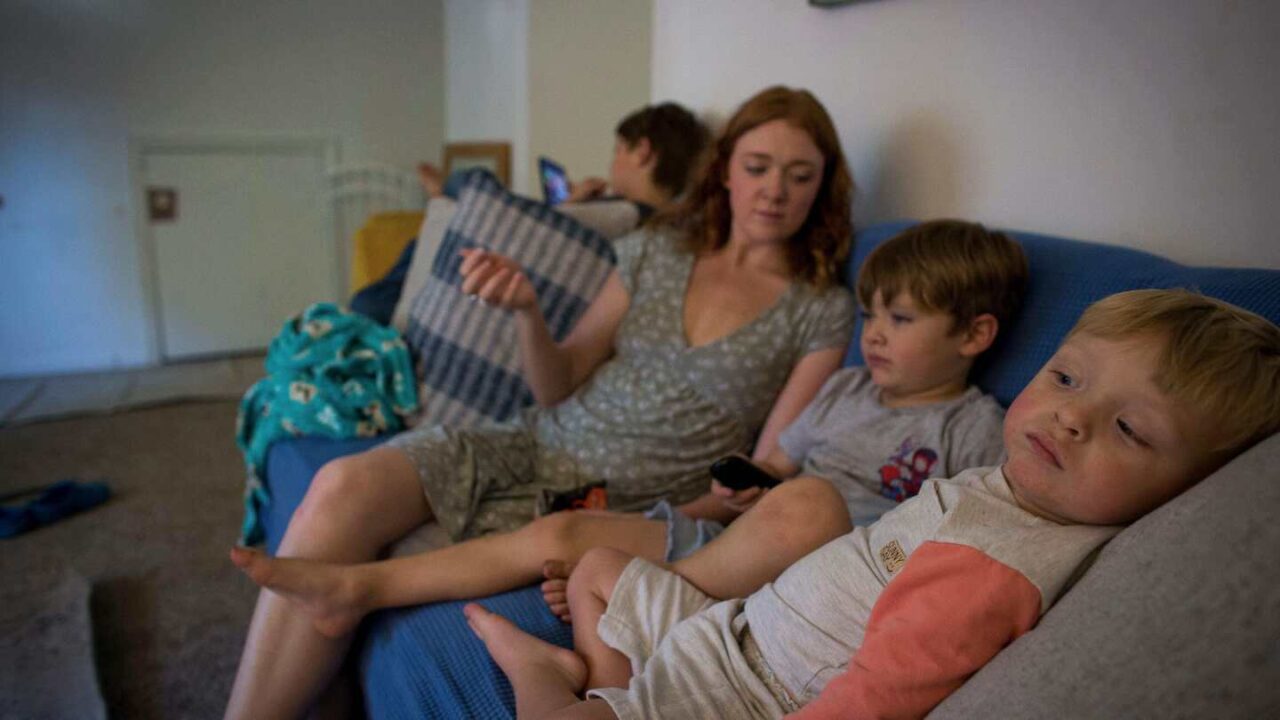Washington (AP) – A food aid program that attends more than six million mothers of low revenues and young children will run out of federal funds in two weeks unless the closure of the government ends, which will force states to use their own money to keep it afloat or risk that it closes, experts say.
The Special Supplementary Nutrition Program for women, infants and children, known as WIC, of 8,000 million dollars, provides vouchers to buy children’s formula, as well as fresh fruits and vegetables, low fat milk and other healthy foods that are often out of the financial reach of low -income households.
The closure, which began on Wednesday, coincided with the beginning of a new fiscal year, which means that programs like WIC, which depend on annual injections of the federal government, are almost without money. Currently, the program remains afloat with a contingency fund of 150 million dollars, but experts say it could run out quickly.
After that, states could intervene to finance the program and seek reimbursement when a budget is finally approved, but not all states say they can afford it.
“We are optimistic about one or two more weeks,” said Ali Hard, director of policies of the Wic National Association. “After that, we are very worried.”
WIC helps families buy more nutritious food
Taylor Moyer, mother of three children who recently separated from her husband, has been receiving WIC since her first child was born nine years ago. It indicates that the program allowed him to feed his children with nutritious foods that tend to be more expensive than processed and dense options in calories. He also provided him with guidance when he had difficulty breastfeeding and advised her on how to handle her son’s selective feeding stage.
“There have been times when I sat in my house and I have really wondered how I was going to feed my family,” said Moyer, who works at the LGBT Life Center in Virginia Beach, Virginia. “And I went to the store with my wic card … I got rice, avocados, eggs, and I made a balanced meal that was really good.”
The closure occurred when the Democrats and Republicans failed to approve a new expenses plan. Democratic legislators want to extend the tax credits that make medical care more cheaper for millions of Americans, and want to reverse the deep cuts to Medicaid that were approved earlier this year. They refused to sign any expenses plan that did not include those provisions.
The president of the House of Representatives, Mike Johnson, a Republican from Louisiana, blamed the democrats for the closure and called them hypocrites because not financing the federal government endangers so many health programs.
The WIC program, which has long had bipartisan support, helps those who are pregnant, mothers and children under 5 years. The research has linked it to a lower infant mortality, healthier birth weights, higher immunization rates and better academic results for the participating children. Almost half of those who are eligible do not register, often because they believe they do not qualify or cannot reach a WIC office.
Some Republican legislators want to cut WIC, which is destined to be eliminated in project 2025, the influential policy plan drafted by the man who is now the head of budget of President Donald Trump. Trump’s budget application and the expenses plan backed by the Chamber’s Republicans do not completely finance the program. They also want to cut funds for families to buy fresh fruits and vegetables.
Some states promise to cover the gaps in food aid
In case of prolonged closure, several states have sought to reassure WIC beneficiaries that they will continue to receive benefits. The governor of Connecticut, Ned Lamont, a Democrat, said the State will assume the cost if the federal funds are exhausted.
“I want those young families, those mothers, to know that their WIC card will remain valid in the predictable future,” Lamont said. “We are making sure that the government does not take that away from them.”
But in the state of Washington, where a third of babies receive WIC benefits, officials say they don’t have money to keep the program open.
“Washington Wic will be able to maintain the benefits for a weeks before a federal closure forces a total closure,” said Raechel Sims, spokesman for the State Health Department. “If the closure lasts more than that, the department does not have the ability to replace WIC funds.”
Moyer, Virginia Beach’s mother, warned that finishing the program could be catastrophic for beneficiaries.
“There will be babies who skip meals. There will be pregnant women who skip meals to be able to feed their young children,” he said. “And it means that people will not have a balanced and healthy diet.”
___________________________________
The correspondent Susan Haigh in Hartford, Connecticut contributed this note.
___________________________________
The educational coverage of The Associated Press receives the support of several private foundations. The AP is solely responsible for the content. Find the AP standards to work with philanthropic organizations, a list of foundations and coverage areas that they finance in Ap.org.
___________________________________
This story was translated from English by an AP editor with the help of a generative artificial intelligence tool.
This article was published by Moriah Balingit,JoNel Aleccia on 2025-10-06 09:19:00
View Original Post



